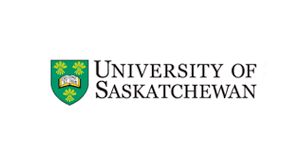University of Saskatchewan: Fedoruk Centre at USask supports small reactor plan
The Province of Saskatchewan is considering installing up to four small nuclear reactors on the electrical grid to reduce greenhouse gases in response to the federal government’s directive to phase out coal by 2030, with wind and solar power projects also in progress to further reduce carbon emissions.
Root said one of the key activities of the Fedoruk Centre is to advise the public and government about nuclear science and technologies.
Canada’s Small Modular Reactor Action Plan calls for partnering among “provinces and territories, Indigenous Peoples and communities, power utilities, industry, innovators, laboratories, academia, and civil society.” The Province of Saskatchewan and the Fedoruk Centre at USask are among more than 100 entities across the country that have offered contributions to the federal SMR action plan.
“Saskatchewan universities have contributed and everyone has put in their two cents to create a national picture of all of these players contributing to SMRs, aligning somewhat as a distributed team,” said Root.
With provincial plans for SMR deployment taking shape over the next few years, Root said now is the perfect time for Saskatchewan post-secondary institutions to bolster academic leadership for research and education in SMR-related topics.
“The Fedoruk Centre has funded many projects to strengthen nuclear research, development, or training, led by professors at the University of Saskatchewan and at the University of Regina,” said Root. “I believe we are short on academic leadership in nuclear topics in Saskatchewan. It will be about six or seven years before SMRs could be deployed, but by then you want to have people ready to support the new technology. First, we need the dedicated academic leaders and then there are years to develop programs and a workforce for the nuclear sector. The time to start is now.
“It’s not only about SMRs, but also the social science of how you interact with communities about nuclear power, and about using radio isotopes for health, or applying nuclear methods to advance materials for everyday life. All these aspects of nuclear science and technology are connected. Ideally, many Saskatchewan researchers and teachers would choose to participate in nuclear research, development and training, and also to be available to respond to public interests or concerns, sharing their individual perspectives and expertise in respectful conversation.”
The Fedoruk Centre was established in 2011 as a not-for-profit corporation with an independent Board of Directors and USask as the sole member. The Fedoruk Centre is funded through an agreement with Innovation Saskatchewan, an agency of the provincial government, plus revenue from third parties, for the purpose of helping to place Saskatchewan among global leaders of nuclear research, development and training.

